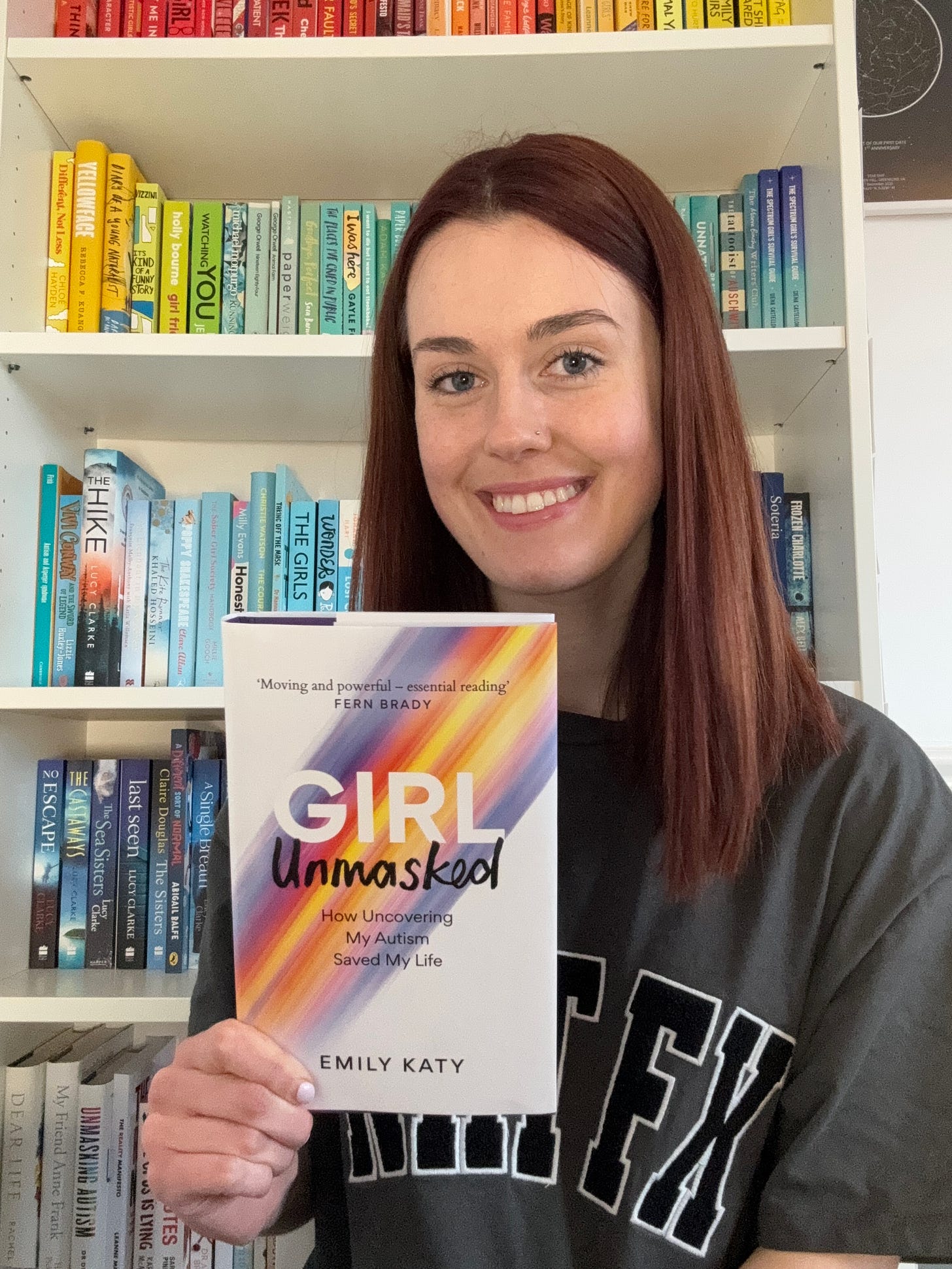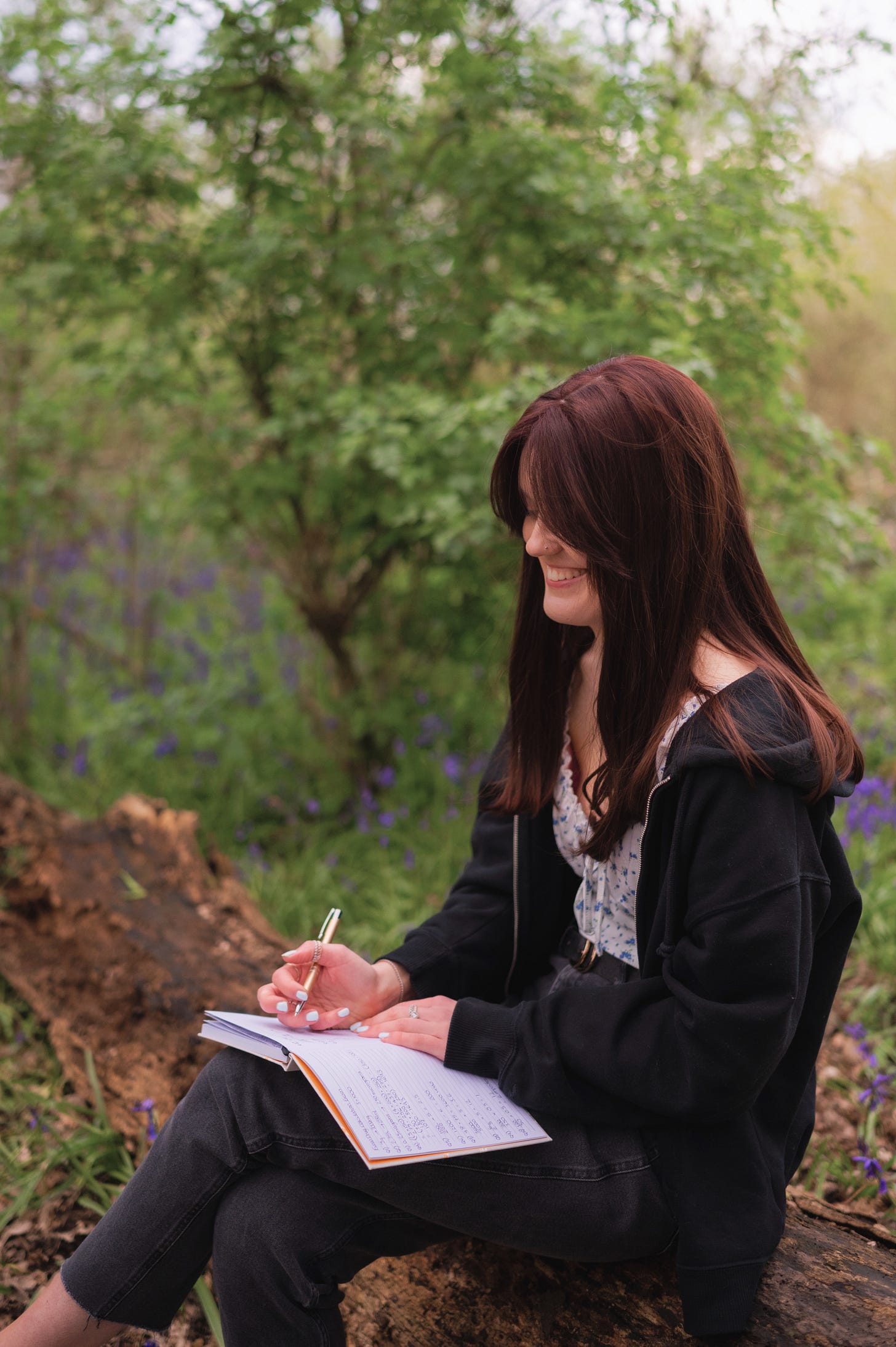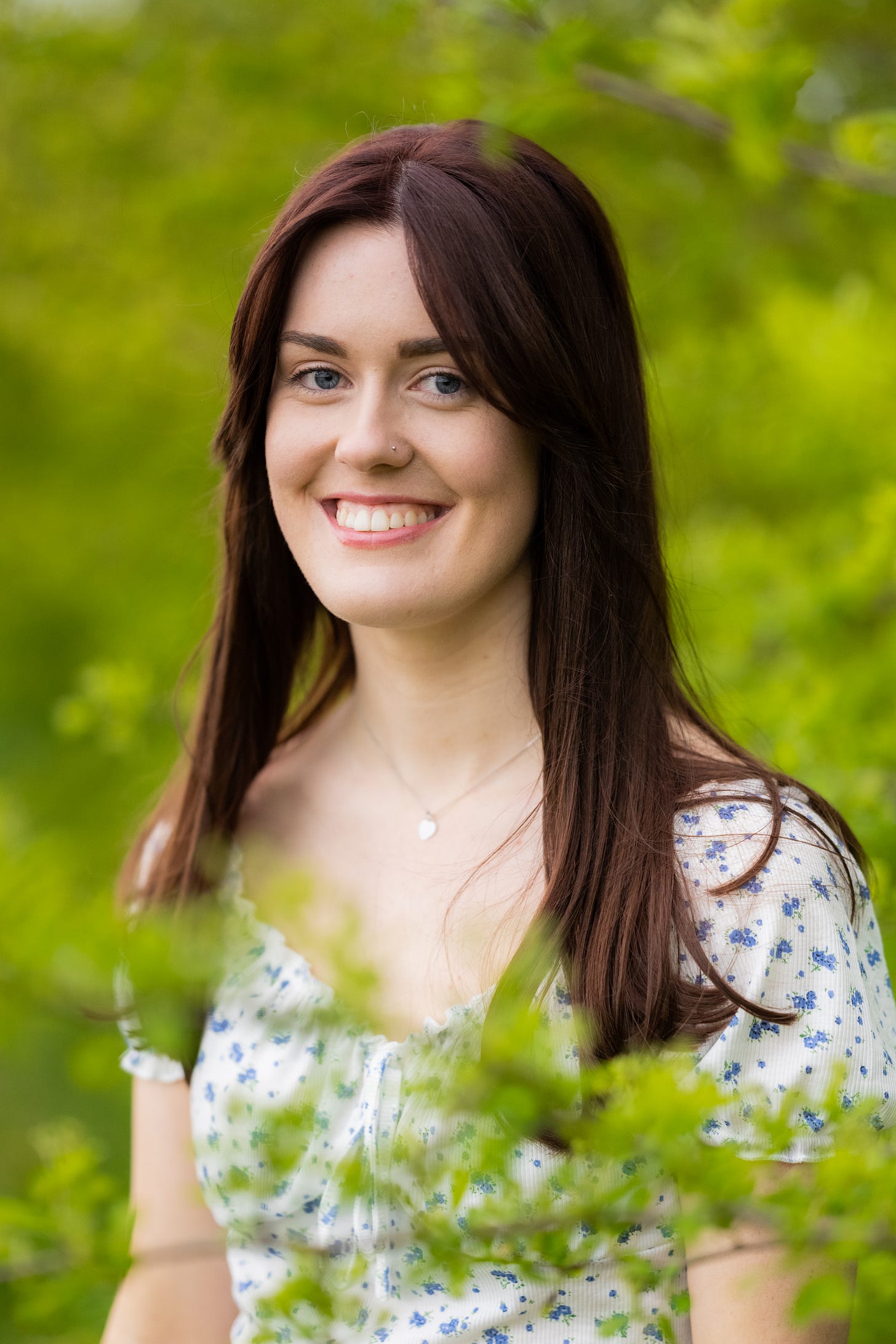Do whatever works for you - it doesn't matter if it doesn't seem 'right' or if it's not the advice other writers have given you
Emily Katy's (neurodivergent) notes on writing
In Emily Katy’s interview below she talks about writing having different seasons and I absolutely love this idea - I’ve been thinking about it since Emily said it and it’s been really illuminating and an evergreen reminder to be kind to myself when writing. I hope that whether you are in a fruitful season or a fallow season with your own creativity, you can find comfort and insight in Emily’s very generous interview.
It’s a really important week for Emily as her debut non-fiction, Girl Unmasked, comes out in paperback on 27th February! I’m so grateful to Emily for making the time for the newsletter in a really busy time and if you do have the ability, consider pre-ordering Emily’s book (pre-orders really help to signal to the publishing industry there’s a demand for ND authors).
We also have our second recommendation for Elle McNicoll’s fabulous middle-grade fiction from Emily! It’s lovely to see how much the neurodivergent writer community supports each other. And if you have a favourite ND writer you’d like me to interview, let me know in the comments!
Hey Emily! Tell us a bit about you and your work
Hello! I am the author of Girl Unmasked: How Uncovering My Autism Saved My Life (which is a Sunday Times Bestseller), a blogger and speaker and Trustee of the charity Autistic Girls Network.
When I was 16, I was sectioned on a CAMHS unit due to my mental health1. I'm autistic and have ADHD, but that wasn't recognised at the time and this contributed to my needs not being understood or met appropriately. Now, I'm really passionate about young autistic people understanding why they are different and knowing that they aren't alone, and raising awareness and understanding of autism, ADHD and mental health.
Does being neurodivergent impact your creative process? And if so how?
Definitely - I have always been very creative and imaginative, and I think my ADHD helps with that because my brain never switches off! I have endless ideas and getting through them can be tricky, so sometimes it is a hinderance, but at the same time it helps my creativity to flow. Being autistic contributes to the fact that I'm a planner and I like to know what is going to happen, so when it comes to writing I plan! At the moment I'm working on a fiction book for teenagers and I had it all planned out a year and a half ago - I just have to get it onto paper now!
How is neurodiversity a theme in your work?
I write and talk about being autistic to try to help other autistic people feel less alone, but also to help non-autistic people understand more and hopefully to help professionals be able to recognise and support us better within the mental health and education system. In the novel I'm currently writing, the protagonist is autistic so it's becoming a bit of a theme even within my fiction writing!
What's one piece of advice you would give to aspiring neurodivergent writers out there?
Do whatever works for you - it doesn't matter if it doesn't seem 'right' or if it's not the advice other writers have given you. Your brain works differently - and that's okay! You don't have to stick to a set writing schedule every day to be a writer. There might be seasons of life when you hyperfocus and write loads, and other seasons where things take over. I've never been someone who can just write for half an hour a day. I either throw myself in to writing or I'm busy with other things!
Is there a book (or other kind of art) by a neurodivergent artist that you love and you'd like to draw our attention to?
All of Elle McNicoll's writing, for example A Kind of Spark. Even though this is a middle-grade book, I found it (as well as its prequel Keedie) so healing for my younger self. I love that young autistic people/autistic children have books like Elle's and role models like Elle now to look up to, that they can see themselves in.
What's one thing the publishing industry could do to make things better and more accessible for neurodivergent writers?
I am very grateful for my publishing team and my literary agent who have made this process a really enjoyable one. One thing that is so important is things being specific. Specific instructions and communication - whether that's being as specific as possible with timelines, with what exactly they are asking from me, what is expected from me and with communicating what to expect - makes everything a whole lot easier.
What are you working on at the moment?
The paperback of Girl Unmasked is released on 27th February, so I'm currently working on promo for that! I'm creating videos and content online, working on my blog on Authentically Emily and trying to help others through my online content. I'm also working on my young adult fiction novel, which I am really enjoying the process of writing!
And lastly, how can readers of the newsletter support your work?
If you would like to, you can read Girl Unmasked. If you can, support your local independent bookshop or order via Bookshop.org as this supports independent bookshops too, but Girl Unmasked is available anywhere you get your books! It is also available as an audiobook and an ebook!
You can also subscribe to my blog on Authentically Emily and follow me on social media @ItsEmilyKaty. Instagram is my main platform, but I'm also on TikTok, X, BlueSky and LinkedIn!
CAMHS stands for Child and Adolescent Mental Health Services.




